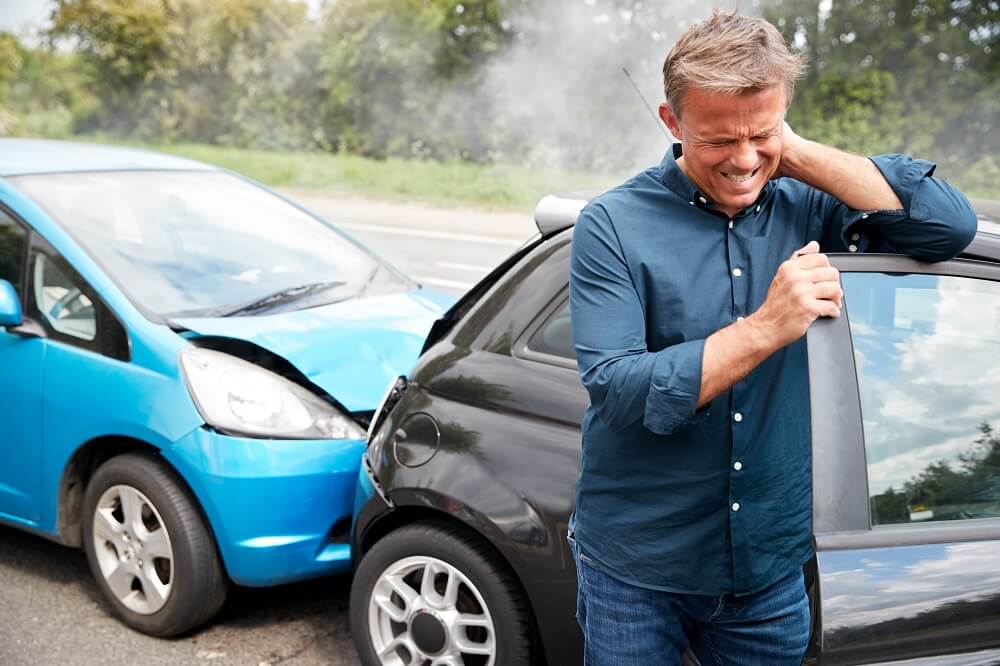
In Georgia, the motorist who rear-ends another vehicle is presumed to be at fault for the wreck. However, this isn’t always the case. Understanding how to determine fault after a crash is crucial for anyone with rear-end accident injuries.
At Sherrod & Bernard, P.C., we have extensive experience helping clients understand their rights and recover fair compensation following rear-end accidents. Our Georgia car accident lawyers can meet with you for a free consultation to discuss your options for pursuing compensation after your collision.
When Might the Rear Driver Not Be At Fault?
The driver in the rear may not be liable for a rear-end crash in some situations. One common case where the rear-ending vehicle may not be liable is if the leading vehicle cuts off the rear driver and abruptly stops or slows down, making it impossible for them to stop in time to avoid a rear-end car accident.
Additionally, if the front driver is reversing at the time of the accident or driving erratically and causes their vehicle to be rear-ended, the court may find them to be the at-fault party for the accident.
Another scenario that may shift blame from the rear driver is when the accident occurs due to a defective auto part. The manufacturer may be liable if a mechanical failure led to the rear-end collision.
What Are Common Causes of Rear-End Accidents?
Rear-end accidents happen for a variety of reasons. In many cases, the other driver’s negligence is the cause.
Some negligent actions commonly leading to rear-end collisions include:
- Distracted driving – When drivers are not paying attention to the road ahead, they may not see other vehicles slowing down or stopping. Common distractions that cause rear-end accidents include cell phone use, eating, and talking to passengers.
- Impairment – Drivers who are under the influence of drugs or alcohol may be unable to react in time to avoid crashing into other vehicles on the road. Impairment significantly affects a driver’s judgment, which may lead them to believe that there is more space between their vehicle and the one ahead than there really is.
- Speeding – Drivers who exceed the speed limit may not be able to stop in time to avoid crashing into vehicles that are slowing down or stopping on the road ahead.
- Tailgating – When drivers follow too closely to other vehicles, they have less time and space to react to sudden changes in traffic patterns.
How Do You Prove the Other Driver Was At Fault?
The success of your personal injury claim will depend on your ability to demonstrate fault. Proving fault requires you to show that the other driver’s actions or inaction caused the accident. This may involve providing evidence that the driver was following your vehicle too closely or another factor.

What Evidence Can Support Your Rear-End Accident Claim?
Several forms of evidence can help you demonstrate negligence for a rear-end car accident claim.
This evidence can include:
- Photos of the accident scene – Pictures that show skid marks, road conditions, vehicle positions, and damage can provide visual proof of the factors contributing to the crash.
- Police report – The police report provides an authoritative third-party view of the accident. It includes any citations for drivers and the officer’s observations at the scene.
- Statements from witnesses – Witness accounts of an accident provide unbiased views of the accident, which can support your claim regarding fault.
- Traffic cameras – Footage from traffic cameras is truly valuable since it shows actual video of the accident. This can provide visual evidence surrounding the circumstances of the crash and all contributing factors.
- Dashcam footage – Like traffic cameras, dashcam footage can provide clear visual evidence of the collision. However, dashcam footage also has a closer view than most traffic cameras. For example, this can help your Georgia car accident attorney show that the driver was on their phone at the time of the accident.
- Vehicle damage – The type and location of damage on the vehicles often provide critical information surrounding a rear-end car accident. This can include whether a vehicle is speeding, if the driver is traveling between lanes, and other factors that contribute to rear-end collisions.
- Medical records – These records demonstrate injuries and establish a direct link between the physical and emotional injuries and the accident.
- Expert testimony – Reconstruction experts, medical professionals, and other experts may provide testimony regarding aspects of the crash. This scientific evidence can be monumental when it comes to proving an accident claim.
What If You Were Partly to Blame for the Rear-End Accident?
If you are partially at fault for a rear-end accident in Georgia, you can still pursue legal action against the other driver. As long as you are less than 50 percent responsible for the accident, you still have a right to recover compensation for your injuries and losses from the crash. However, since Georgia has modified comparative negligence laws, your share of fault will directly influence the amount of money you receive for your case.
A successful claim for compensation against another driver involves demonstrating their negligence was a major factor in your accident. A skilled car accident attorney can help you prove their share of fault is greater than yours.
Contact a Georgia Rear-End Accident Lawyer
Our dedicated Georgia rear-end accident lawyers at Sherrod & Bernard, P.C. can guide you through every step of the legal process. With our knowledge and resources, we’ll take over your case while you focus on your recovery. If you are dealing with injuries you got in a rear-end accident that was someone else’s fault, contact us today at (678) 905 7854 for a free consultation to discuss your situation and explore your options for pursuing the money you deserve.
